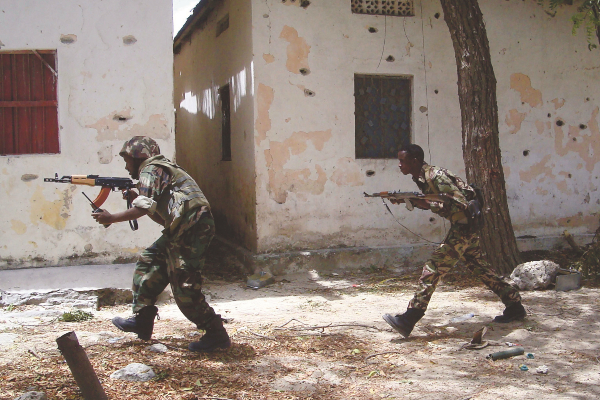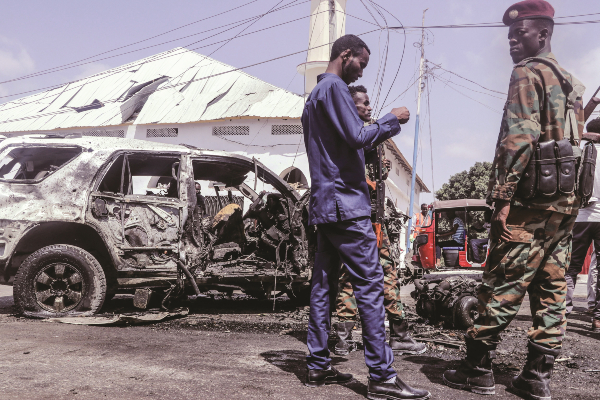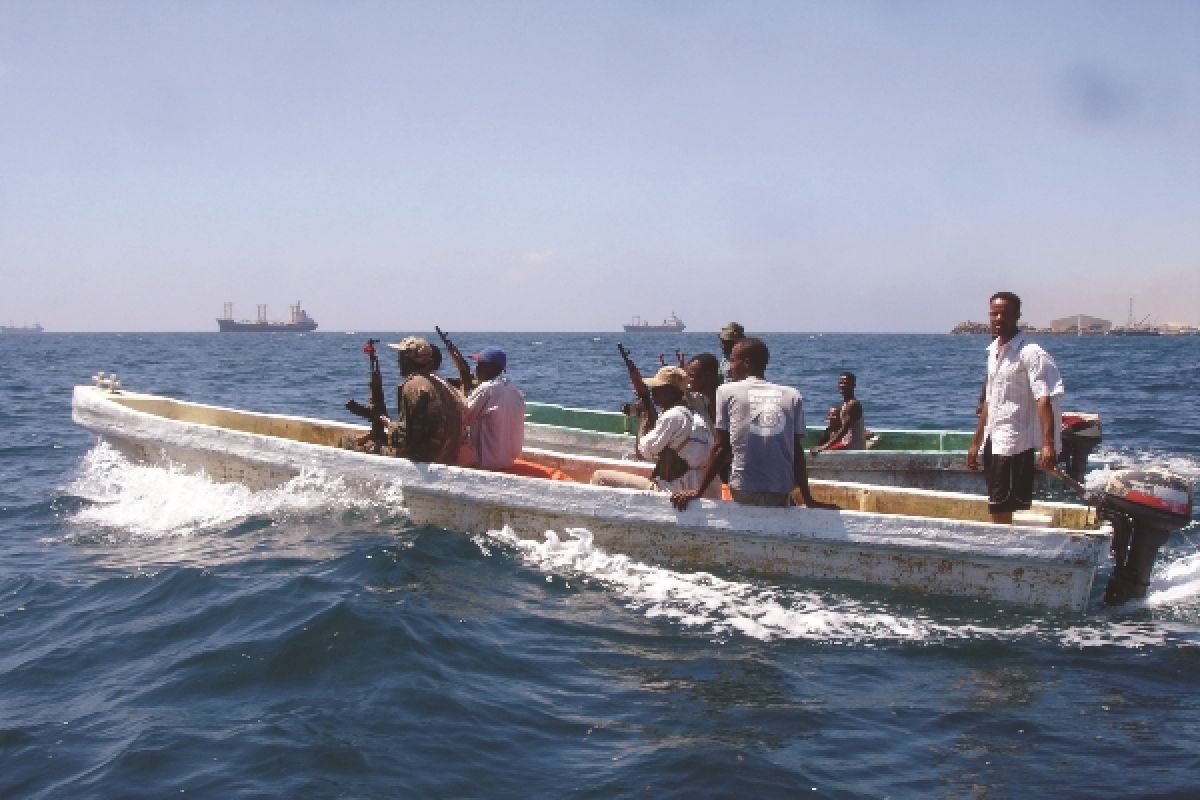As last month’s deadline to choose a new president is missed, Somalia’s politicians are risking instability across East Africa. By Zachary Ochieng in Nairobi.
The crisis in Somalia continues to escalate as politicians squabble over elections in the war-torn country.
The political disagreements revolve around election procedures for the Somaliland and Gedo regions, which continue to delay elections that should have taken place before the current president’s term in office was due to end on February 8.
The situation has been exacerbated by opposition groups, who no longer recognise President Mohamed Abdullahi Farmajo, despite a parliamentary resolution allowing him to remain in office until a successor is elected.
The resolution was passed last year to avoid a power vacuum.
Opposition groups want the formation of a transitional body.
However, the two leaders of the semi-autonomous regions of Jubbaland and Puntland have disagreed over the proposed venue of the meeting to resolve the crisis.
Meanwhile, time is running out to end the impasse.
The country had already missed a deadline to hold parliamentary elections in December 2020, following persistent disputes between the federal government and some regional administrations.
As the crisis escalates, observers claim that the tension is not only about elections but long-standing animosity between regional and federal governments and the high-handedness of President Farmajo.
The director of the East Africa Center for Research and Strategic Studies, Abdallah Ibrahim, believes President Farmajo’s incompetence is at the heart of the issue: ‘He failed all and every dream that Somalia anticipated of him. It was clear from the first year of his tenure that he never wanted to hold any election.
He added: ‘He planned to stay in power for infinity and that is why he fell out with his Prime Minister.
'The clannish attitude of the President to arm his clan and attempt to fight other clans is one of the main factors. His free access to unlimited financial support from Qatar has also boosted his arrogance. He only wants to buy supporters or kill and imprison opposition.’
Kenyan historian Fred Oluoch believes the president’s tribal tendencies are a major problem.
‘The crisis in Somalia is not just about the disagreement over who conducts elections but a product of underlying issues, such as the tension between the centre and some federal states,’ said the Horn of Africa specialist.
He also chided the president’s ‘inability to entrench federalism as contained in the interim constitution’ adding that the constitutional reform process should have ‘provided guidance on how to hold elections’.

According to the International Crisis Group (ICG), Somalia stands at a critical juncture.
The hopes raised in 2017 when President Farmajo won the election have dimmed as infighting between the federal government and its member states has increased.
In its latest report, the ICG states that tensions between the federal government and semi-autonomous federal member states have poisoned the air for cooperation on a number of fronts, including work on a provisional constitution and establishment of a national army and police force.
‘The polls risk piling further pressure on the political system and triggering confrontations among various powerful actors’ said the report.
‘Meanwhile, the African Union Mission in Somalia (AMISOM) looks set to begin drawing down at year’s end, even as al-Shabab’s insurgency rages on.
The ICG has recommended that the European Union use its diplomatic clout to push for fair, transparent and inclusive elections in Somalia. It said that Brussels should lean on Mogadishu to stop it unilaterally proceeding with the vote, while also ensuring regional governments avoid conducting parallel polls, as some have contemplated, and instead stick to the dispute resolution mechanism agreed in September 2020.
It further recommends that to boost inclusivity, the EU and member states should call for a clearer plan for how Somali leaders will fulfil their own commitment to ensuring that women assume at least 30 per cent of elected offices.
And said that the EU should also press whatever administration eventually takes power in Mogadishu to improve cooperation with federal member states.
But Ibrahim, of the East Africa Center for Research and Strategic Studies, has misgivings over the intervention of the international community.
‘The international partners have always been an impartial force that keep the balance,’ said Ibrahim.
‘But the charade is that they have lost relevance in Somalia in the recent past and have often colluded with the lame-duck president fully. They watched, waited and disappointed the Somali public.’
Though Somalia can navigate the elections without major violence, whoever assumes the presidency will still face big challenges, including a deeply divided political landscape.
The country, which has been torn apart by instability and terrorism, has more than 2.5 million internally displaced persons, according to the UN. A further 750,000 refugees have been forced to flee to neighbouring Kenya, Ethiopia and Djibouti.
The Islamist terror group al-Shabab still controls much of southern and central Somalia but has also been able to extend its influence into areas controlled by the government based in Mogadishu.

Al-Shabab continues attacks
The Islamist terror group may not have hit international headlines recently. But the group – responsible for dozens of bombings and kidnapping in neighbouring countries, including the infamous Westgate Mall massacre in Nairobi in 2013 – is still wreaking havoc across the country.
2nd January 2021: A suicide attack at a Turkish construction company killed five and injured 14.
31st January 2021: Three civilians were killed in an attack on a Mogadishu hotel.
10th February: Al-Shabab attacked an African Union Mission in Somalia (AMISOM) base in Qoryoley and an AMISOM base in Afmadow district.
15th February: The group attacked an SNA base in Mogadishu’s Wardhigley district.
18th February: The Somali National Army (SNA) claimed to have killed 20 al-Shabab militants near Qoryoley and Janale in southern Somalia’s Lower Shabelle region.
18th February: Al-Shabab attacked Kenyan military bases in Hosingow, Taabta and Qoqani near Afmadow district in southern Somalia.
19th February 2021: Somali security forces exchanged gunfire with opposition supporters protesting Somalia’s delayed federal presidential elections in Mogadishu.




